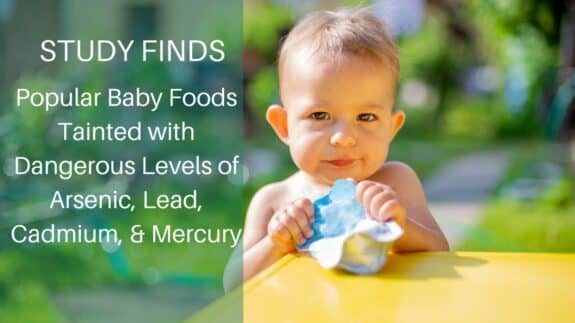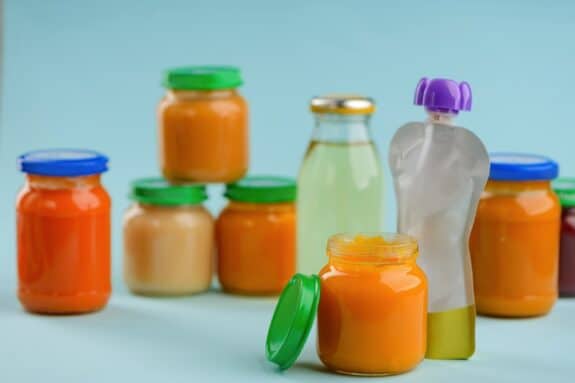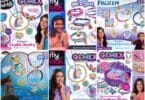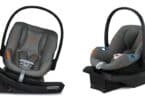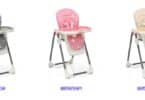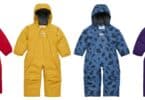Our baby’s first foods serve as both a new nutritional source and the introduction into a new world. For this reason, parents choose the order of introduction carefully and often make their own foods to ensure they can control everything their baby is consuming is healthy and safe. Because not all parents are able to create their own baby meals there are a long list of companies that create jarred and pouch foods to assist with the transition. Often marked as organic and all-natural, parents trust these companies to create a safe product for their babies. But should they?
Inorganic arsenic, lead, cadmium, and mercury are toxic heavy metals we don’t ever expect to find in our adult food – let alone something we would feed our babies. The Food and Drug Administration and the World Health Organization have declared them dangerous to human health, particularly to babies and children, who are most vulnerable to their neurotoxic effects. Even low levels of exposure can cause serious and often irreversible damage to brain development.
On November 6, 2019, following reports alleging high levels of toxic heavy metals in baby foods, the Subcommittee on Economic and Consumer Policy requested internal documents and test results from seven of the largest manufacturers of baby food in the United States, including both makers of organic and conventional products:
- Nurture, Inc. (Nurture), which sells Happy Family Organics, including baby food products under the brand name HappyBABY
- Beech-Nut Nutrition Company (Beech-Nut)
- Hain Celestial Group, Inc. (Hain), which sells baby food products under the brand name Earth’s Best Organic
- Gerber
- Campbell Soup Company (Campbell), which sells baby food products under the
brand name Plum Organics - Walmart Inc. (Walmart), which sells baby food products through its private brand Parent’s Choice
- Sprout Foods, Inc. (Sprout Organic Foods)
The report notes that four of the companies Nurture, Beech-Nut, Hain, and Gerber—responded to the Subcommittee’s requests. Walmart, Campbell, and Sprout Organic Foods refused to cooperate with the Subcommittee’s investigation.
Toxic Metal Testing Results:
Nurture (HappyBABY)
- Sold baby foods after tests showed they contained as much as 180 parts per billion (ppb) inorganic arsenic
- Over 25% of the products Nurture tested before sale contained over 100 ppb inorganic arsenic.
- Typical baby food products it sold contained 60 ppb inorganic arsenic.
- Finished baby food products that tested as high as 641 ppb lead.
- Almost 20% of the finished baby food products that Nurture tested contained over 10 ppb lead.
- Sixty-five percent of Nurture (HappyBABY) finished baby food products contained more than 5 ppb cadmium.
- Nurture (HappyBABY) sold finished baby food products containing as much as 10 ppb mercury.
Hain (Earth’s Best Organic) typically only tested its ingredients, not finished products.
- Sold finished baby food products containing as much as 129 ppb inorganic arsenic.
- Used ingredients testing as high as 309 ppb arsenic.
- Used ingredients containing as much as 352 ppb lead.
- Used many ingredients with high lead content, including 88 that tested over 20 ppb lead and six that tested over 200 ppb lead.
- Used 102 ingredients in its baby food that tested over 20 ppb cadmium. Some tested much higher, up to 260 ppb cadmium.
- Does not even test for mercury in baby food.
Beech-Nut
- Used ingredients after they tested as high as 913.4 ppb arsenic
- Routinely used high-arsenic additives that tested over 300 ppb arsenic to address product characteristics such as “crumb softness.”
- Used ingredients containing as much as 886.9 ppb lead.
- Used many ingredients with high lead content, including 483 that contained over 5 ppb lead, 89 that contained over 15 ppb lead, and 57 that contained over 20 ppb lead.
- Used 105 ingredients that tested over 20 ppb cadmium.
- Some tested much higher, up to 344.55 ppb cadmium.
- Does not even test for mercury in baby food.
Gerber
- Used high-arsenic ingredients, using 67 batches of rice flour that had tested over 90 ppb inorganic arsenic.
- Used ingredients that tested as high as 48 ppb lead; and used many ingredients containing over 20 ppb lead.
- Seventy-five percent of Gerber’s carrots contained cadmium in excess of 5 ppb, with some containing up to 87 ppb cadmium.
- Gerber rarely tests for mercury in its baby foods
After seeing these results the Subcommittee has serious concerns about the safety of baby food products manufactured by Walmart (Parent’s Choice), Sprout Organic Foods, and Campbell (Plum Organics). Because they refused to cooperate with the Subcommittee’s investigation they are this might obscure the presence of even higher levels of toxic heavy metals in their baby food products, compared to their competitors’ products. In the past, independent testing of Walmart, Sprout Organic Foods, and Campbell products has confirmed that their baby foods contain concerning levels of toxic heavy metals.
This information, which made clear that ingredient testing is inadequate, and that only final product testing can measure the true danger posed by baby foods, was presented to the Trump Administration’s FDA. The Trump FDA took no new action in response. To this day, baby foods containing toxic heavy metals bear no label or warning to parents.
Moving forward the Subcommittee would like to see:
- Mandatory testing—Baby food manufacturers should be required by FDA to test their finished products for toxic heavy metals, not just their ingredients;
- Labeling—Manufacturers should by required by FDA to report levels of toxic heavy metals on food labels;
- Voluntary phase-out of toxic ingredients—Manufacturers should voluntarily find substitutes for ingredients that are high in toxic heavy metals, or phase out products that have high amounts of ingredients that frequently test high in toxic heavy metals, such as rice;
- FDA standards—FDA should set maximum levels of toxic heavy metals permitted in baby foods. One level for each metal should apply across all baby foods. And the level should be set to protect babies against the neurological effects of toxic heavy metals; and
- Parental vigilance—Parents should avoid baby foods that contain ingredients testing high in toxic heavy metals, such as rice products. Instituting recommendations one through four will give parents the information they need to make informed decisions to protect their babies.
The committee noted, ‘Baby food manufacturers hold a special position of public trust. Consumers believe that they would not sell products that are unsafe. Consumers also believe that the federal government would not knowingly permit the sale of unsafe baby food. As this staff report reveals, baby food manufacturers and the Trump administration’s federal regulators have broken the faith’.
SOURCE House Oversight subcommittee report

